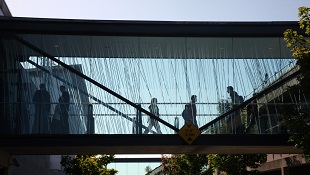-
Courses

Courses
Choosing a course is one of the most important decisions you'll ever make! View our courses and see what our students and lecturers have to say about the courses you are interested in at the links below.
-
University Life

University Life
Each year more than 4,000 choose University of Galway as their University of choice. Find out what life at University of Galway is all about here.
-
About University of Galway

About University of Galway
Since 1845, University of Galway has been sharing the highest quality teaching and research with Ireland and the world. Find out what makes our University so special – from our distinguished history to the latest news and campus developments.
-
Colleges & Schools

Colleges & Schools
University of Galway has earned international recognition as a research-led university with a commitment to top quality teaching across a range of key areas of expertise.
-
Research & Innovation

Research & Innovation
University of Galway’s vibrant research community take on some of the most pressing challenges of our times.
-
Business & Industry

Guiding Breakthrough Research at University of Galway
We explore and facilitate commercial opportunities for the research community at University of Galway, as well as facilitating industry partnership.
-
Alumni & Friends

Alumni & Friends
There are 128,000 University of Galway alumni worldwide. Stay connected to your alumni community! Join our social networks and update your details online.
-
Community Engagement

Community Engagement
At University of Galway, we believe that the best learning takes place when you apply what you learn in a real world context. That's why many of our courses include work placements or community projects.
Research Interviewing
Interview Process:
Unconcious Bias:
All interview board members must complete Unconscious bias training. If you have not previously completed the training on unconscious bias please arrange to do so via the online Unconscious Bias training course. Please use this link to sign in (passwords will be provided by the L&D team) / If external board members have to be enrolled please send their full name and email address to learninganddevelopment@universityofgalway.ie.
Interview Scheduling
The Principal Investigator (PI) or nominee is responsible for identifying and booking a suitable location for the interviews to take place and scheduling all interviews.
- The PI will contact short-listed candidates and invite them to attend for interview in accordance with previously proposed interview dates.
- It is essential that candidates receive sufficient notice of an approaching interview so as to allow them ample time to prepare for interview. In many cases candidates will often have the added requirement of co-ordinating travel arrangements. It is recommended that candidates receive notice of at least 10 working days prior to the interview.
- Should the candidate not be able to attend on the allotted date, the Committee will decide whether or not an alternative interview date can be facilitated.
Interview Preparation
At the shortlisting stage, the Selection Committee (under the direction of the PI) should draft an Interview Plan with specific areas of questioning identified for each Committee Member based on the competencies guidelines.
The Selection Committee should:
- Agree a set of core questions which will form the basis of the interview and will be asked of all applicants. Supplementary or clarifying questions can be used in addition to the agreed core questions
- Base their questions on selection criteria as specified in the Advertisement and criteria.
- Focus on the skills, experience and knowledge required for the job
- Agree in advance rating and scoring system to be used, to ensure consistency and transparency. The PI (or nominee) must ensure that the questions asked are relevant to the position and based on the agreed criteria. The PI (or nominee) must also ensure that questions could not be construed as discriminatory under any of the nine areas covered by the Employment Equality Act, 1998 (Gender, Sexual orientation, Disability, Civil status, Religion, Race, Family status, Age or Membership of the Travelling Community).
Interview Documentation will have been emailed to you by your recruitment consultant when the advert went live.
Conducting the Interview – on the day
Prior to the commencement of interviews the Chairperson should:
- Allow time to discuss, and decide the order in which the questions will be asked and allocate specific areas of questioning to each member;
- Advise Selection Committee members of the procedures for documenting the assessment of each candidate and final decision.
At the start of each interview, the Chairperson should:
- Introduce each applicant to the Selection Committee
- Explain the purpose and structure of the interview to the applicant
- Indicate to the Applicant that Selection Committee members may take notes.
Determining the recommended candidate
- Merit should be judged qualitatively as well as quantitatively, focusing on result with a diversified career path, taking into account career breaks, lifelong professional development and the added value of non-research experience while also accessing competencies.
- The best person for the job will not necessarily be the person who performed best in the interview.
- If the Selection Committee cannot reach agreement on the nominated candidate, the final decision rests with the Chairperson.
- If the Selection Committee determines that no candidate is deemed to fulfil the criteria for appointment, no appointment will be made and the post will need to be readvertised.
Documentation to be returned to the HR Office to appoint successful candidate
Score sheets should comment on the relative merit of recommended applicant(s) on the basis of the selection criteria only. Clear and detailed documentation will assist if post-interview feedback is requested and/or if an appeal is lodged.
On completion of the interview process, the following documentation must be completed and e-signed by all members of the Panel and returned by the PI to your recruitment consultant, along with any other relevant documentation including notes taken during interviews:
- Shortlisting Form - Research Funded Posts
- Interview Assessment Summary Form Research Funded Posts
- Interview Report - Research Funded Posts with confirmation of proposed salary and start date
- CV, Nationality and contact details of successful candidate
- 2x References –Employment Reference check form must be completed Employment Reference Form .
- Submit a PPF (file renamed with the candidates name) to the Research Accounts Office.The PPF form is available here
How to Submit and Complete a PPF (funding approval to hire a researcher) - University of Galway
Note: All Shortlist and interview documentation: Must be retained securely by the PI/Unit for a minimum of two years, including all CVs and notes. Must be completed in line with FOI legislation and feedback requests by candidates. (see FOI Policy - University of Galway for further details). All duplicated documentation (including copies of applications) must be safely disposed of.


















